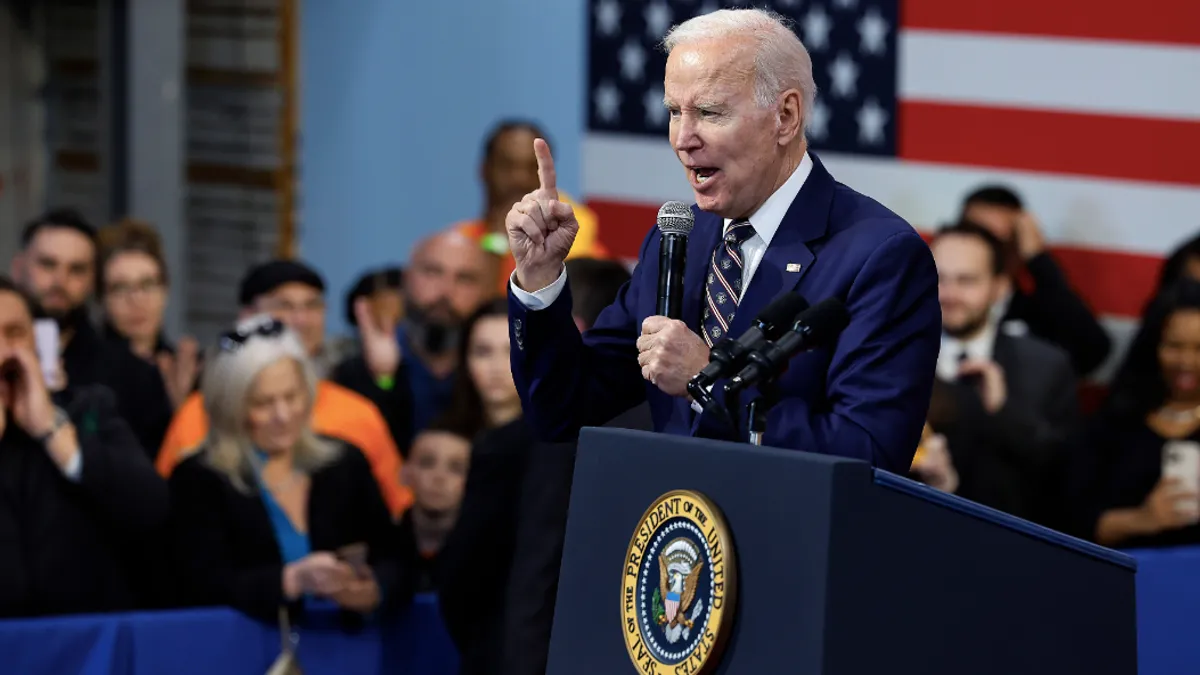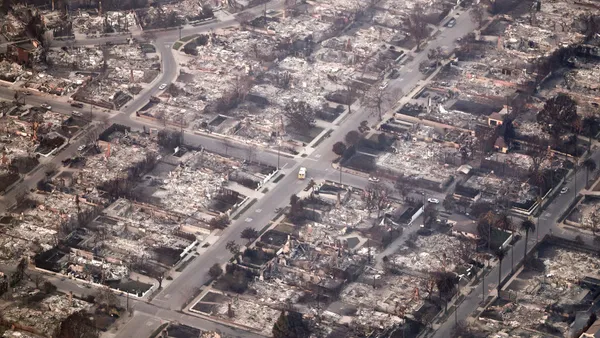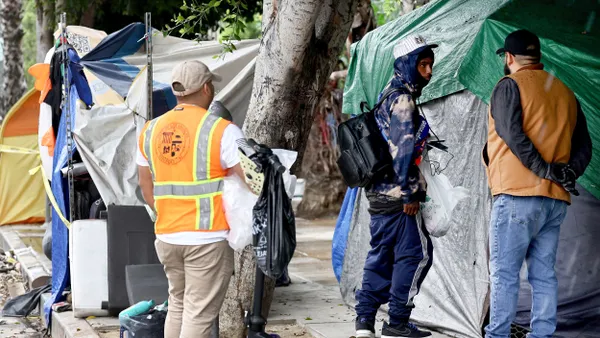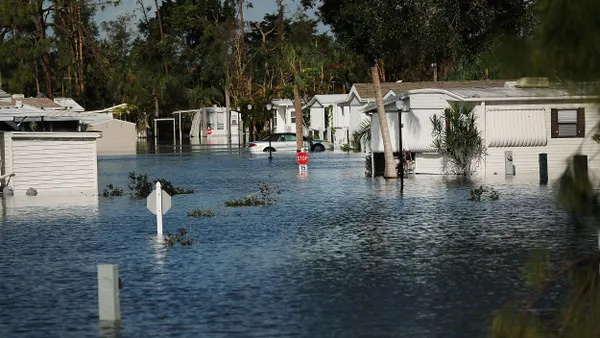Dive Brief:
-
More than $175 billion in housing investments are part of President Joe Biden’s $6.9 trillion budget proposal unveiled Thursday, according to a White House fact sheet. The investments aim to lower housing costs, increase housing supplies, improve access to affordable housing and curb homelessness, the White House said.
-
The budget proposal includes $59 billion in mandatory funding and tax incentives to increase the affordable housing supply and $10 billion in mandatory funding to create incentives for state and local governments to eliminate barriers to affordable housing such as restrictive zoning.
-
“By expanding the supply of housing, the Budget would help prevent the kind of rapid increases in rental and homeownership costs we have seen in recent years,” the administration said.
Dive Insight:
The president’s budget proposal contains several measures that aim to build and preserve affordable housing. Highlights include the following:
- A new neighborhood homes tax credit. The new tax credit would cover the gap between the construction costs and the sale price for rehabilitated or newly constructed single-family homes in low-income communities. The White House says the policy would cost $16 billion over 10 years.
- Expansion of the low-income housing tax credit. The LIHTC is the largest federal incentive for affordable housing construction and rehabilitation, the White House said. The 2024 budget would increase LIHTC spending to $28 billion to permanently increase states’ share of the tax credit allocation and make other changes to spur more private investment in affordable housing. It would also remove provisions that allow some property owners receiving the LIHTC to avoid rent affordability requirements.
- Project-based rental assistance for extremely-low-income households. The proposed budget includes $7.5 billion for new PBRA contracts, which are long-term contracts with private for-profit or nonprofit owners to rent new affordable housing units, according to the White House.
- State and local government incentives. Another $10 billion in planning and housing capital grants aim to “help jurisdictions identify and remove barriers to affordable housing in their communities, such as restrictive zoning and burdensome permitting processes,” a fact sheet said.
- Public housing investments. The budget proposal includes a one-time $7.5 billion investment to rehabilitate or redevelop distressed public housing.
- More funding for the HOME Investment Partnerships Program. The proposed budget includes $1.8 billion for the HOME program to construct and rehabilitate affordable housing, a $300 million increase over fiscal year 2023.
The White House also wants to expand the Housing Choice Voucher program and create voucher guarantees for youth aging out of foster care and extremely-low-income veterans — two groups “acutely vulnerable to homelessness,” it says.
The White House’s budget also includes $3 billion to help state and local governments stop evictions. “This funding can be used to develop or implement policy reforms and program improvements such as providing emergency rental assistance or other forms and new models of rent relief, and expanding access to legal counsel, housing counselors, and court navigators,” according to the fact sheet.
Homeless assistance grants would also get a boost under the president’s budget, providing $3.7 billion, a $116 million increase, to renew grants and expand assistance to another 25,000 households.
Sen. Sherrod Brown, D-Ohio, chairman of the U.S. Senate Committee on Banking, Housing, and Urban Affairs, expressed support for the proposed measures in an email. “These investments will help lower the cost of rent for more families, help prevent and end homelessness, create more affordable homeownership opportunities so families can build generational wealth, and help communities remove barriers to housing near good jobs and transit. I applaud the President’s proposal and look forward to working with my colleagues on these and other proposals to increase our nation’s housing supply and reduce the cost of housing for families in Ohio and across the country,” he said.
Congress is unlikely to pass the president’s budget as written, with the White House engaged in a pitched battle with congressional Republicans over spending priorities and the debt ceiling.
During a press gaggle with reporters Thursday, Shalanda Young, director of the White House Office of Management and Budget, said the administration will work with congressional Republicans to pass a budget, despite their differences. “Is it tough? Yes. But we always find common ground,” she said.
Congressional Republicans are still debating their spending priorities. According to the New York Times, they are building on a budget outline by former President Donald Trump’s budget director, Russell Vought. The outline includes a 43% cut to housing programs, including the eventual elimination of the Housing Choice voucher program.
“There is going to be a gnashing of teeth,” Rep. Ralph Norman, R, a member of the House Budget Committee, told the New York Times about the budget negotiations among GOP legislators. “It is not going to be a pretty process. But that’s how it should be.”











